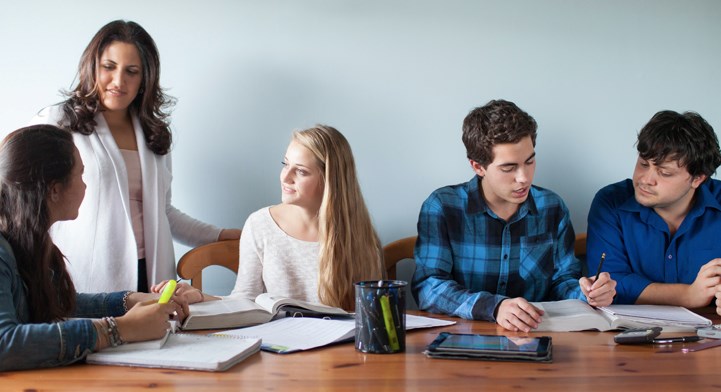Educators can support students in making smart decisions online by being a non-judgemental, caring listener and guide.
That was the advice Ana Homayoun, the author of the book "Social Media Wellness: Helping Tweens and Teens Thrive in an Unbalanced Digital World," provided to a packed house of teachers at Terry Fox Theatre in Port Coquitlam during a professional development day Friday.
Homayoun said every student needs three supporters in times of need, plus three clarifiers to help them navigate their world, and resources in case something goes wrong online.
"You don't need to get overly involved," Homayoun said, "just ask the right questions."
With more people becoming addicted to their cell phones and the need to get affirmation on social media, Homayoun said it's important for students to be given information to make good decisions about how they interact online.
And while there are dangers online, especially with the proliferation of new apps which connect strangers, often anonymously, Homayoun discouraged against tactics of fear and judgement, instead, she suggested educators encourage youth to decide for themselves what is "energizing not draining," so they can curate their feed by opting out of social media or group chats that aren't positive.
Citing the experience of a student she met who was feeling anxious and depressed about what people were saying to her and each other via text message and other apps, Homayoun said it's like a "big weight has been lifted" off the shoulders of youth when they make choices that are in their own best interests.
The teen recognized "I could just unfollow them, and it works," Homayoun said.
Students can also be encouraged to monitor their activities onlline, figure out what they are trying to accomplish, and then choose whether to engage or disengage.
In the classroom, students need opportunities to chat in person, something that educators are in a position to do.
"They almost need us to give them opportunity and permission (to have conversations)," she said.
Students, as well as adults, might be surprised at how much time they spend on line, distracting themselves with cat videos, for example, and Homayoun said young people might be surprised at how much more efficient they are if they use various task apps to help them stay focused, and teachers could help students to learn what it feels like to focus on a single task.
"Students feel better when they can practice it like a muscle."
She also warned adults not to be too smug when viewing the social media practices of youth because older people are just as likely to waste time on social media, get too caught up in curating their lives online, and embrace other anti-social behaviours, such as being glued to a smart phone when waiting in line or while driving.
Noting how many older people criticize youth for watching others play video games online, Homayoun said adults participate in similar activities, based on their own interests, such as when they watch people renovating or a buying a house on HGTV.
Her message to educators was to give information to young people so they can make their own decisions, trust them to make good ones, and build a sense of belonging and community so they know who to turn to when there's a crisis.
It's a message many teachers in the audience seemed to appreciate.
Teacher Dave McCristall, the current president of the Computer Using Educators of BC, said he believed educators needed the insight that Homayoun brings to the issue of social media and its impact on health and wellness.
“We know it has a huge impact on mental health and wellness but we don’t have a way to deal with it because we’re not the parents,” said McCristall, who organized the presentation, along with a day of work shops for teachers as part of a professional day event.
However, instead of banning cellphones or putting them in “cellphone jail,” McCristall says he encourages cell phone use in the classroom and with phones capable of recording, taking photos and connecting to research, they can be a valuable tool.
“We couldn’t do these things even 10 years ago,” McCristall said.



